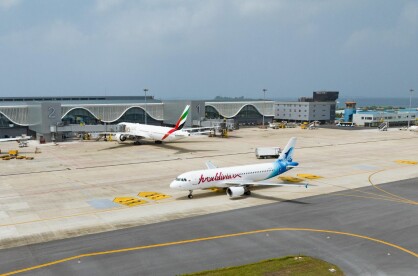In a move to modernize, expand, and sustain the Maldivian Seaplane business, President Dr Mohamed Muizzu announced the Government plans to form a strategic partnership between Island Aviation and the Maldives Airports Company Limited (MACL). This move comes as Island Aviation posted yet another loss of MVR 23 million, citing high operational costs among other issues that the company has been facing.
Although Island Aviation Services (IAS) operates the main domestic airline in the Maldives, Maldivian Airlines, the company has been struggling with its finances since the COVID-19 pandemic. In addition to the toll that the pandemic took on the airline resulting in IAS reporting losses, the company has also been struggling due to high operational costs, having to bear the costs of chartering additional flights as well as the high airport charges that the company has to bear. As a result, IAS has taken to increasing the costs of tickets, which has resulted in domestic travel doubling in price compared to just a few years ago.
Even though the company also runs a seaplane business that connects travellers between resorts and different Atolls in the Maldives, the seaplane business also operates with high competition as this service is also provided by Manta Air as well as Trans Maldivian Airlines (TMA) - the largest seaplane operator in the world. With this, the Government decided during a cabinet meeting to establish a joint venture company under the full control of IASL by April 30, 2025.
This strategic partnership between IAS and MACL is set to be a critical step toward securing the long-term viability of IAS. By merging resources and streamlining operations through a joint venture, IAS can work on reducing its operational costs, particularly in areas like airport charges and flight chartering expenses. This collaboration could also enable the company to optimize its seaplane operations, allowing it to better compete better with larger operators like TMA and Manta Air. With greater operational efficiency, cost control, and enhanced service offerings, the initiative is poised to help IAS recover from its financial struggles and establish itself as a more competitive and profitable company in the future.






